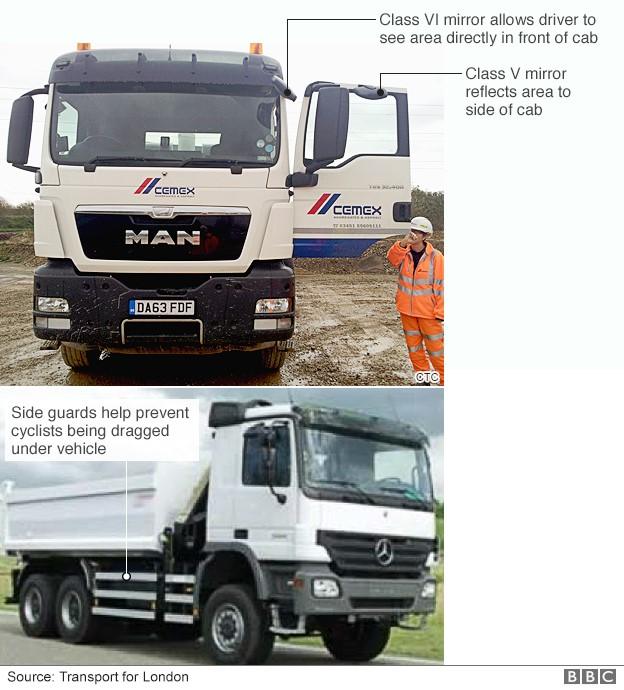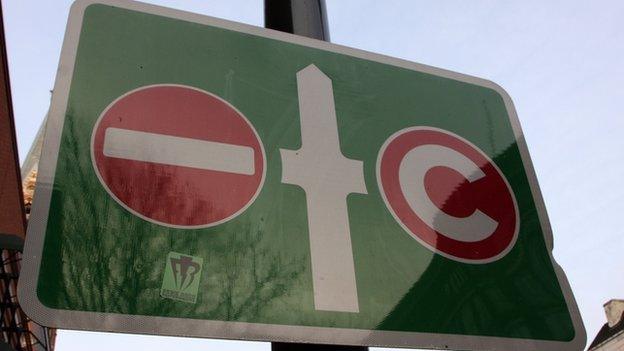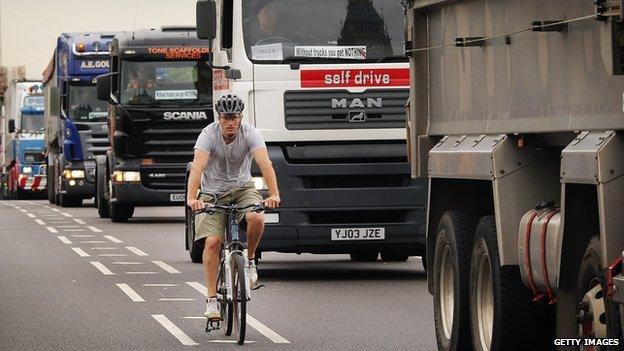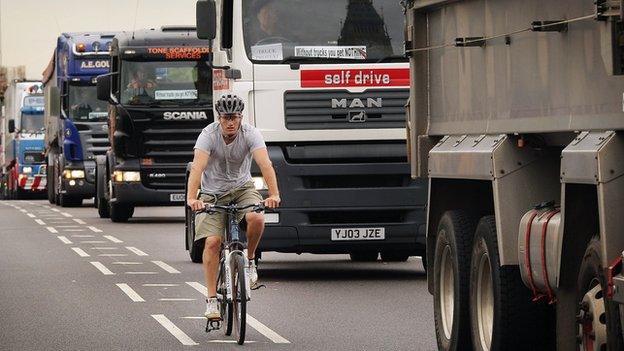London safer lorry scheme in force after cyclist deaths
- Published
Cyclist Philippa Brown sits in a lorry cab in London and is shocked by what she finds
A ban on "unsafe lorries" in London, introduced as part of efforts to protect cyclists, has come into force.
Heavy goods vehicles (HGVs) must now be fitted with side guards to prevent cyclists being dragged underneath.
HGVs must also be fitted with a certain type of mirror to give drivers a better view of cyclists and pedestrians.
But hauliers criticised the move as a "blunt regulatory tool" and said more should be done to target a minority of rule-breakers on London's roads.
Mayor Boris Johnson said the scheme was a "life-saver".
Each breach of the ban carries a maximum £1,000 penalty and repeat offenders risk losing their operating licences.
The new rules, covering all roads in London except motorways, and operating 24 hours a day, were announced after a number of cyclists were killed in road crashes in London.

Seven of the eight cyclist deaths in the capital this year have involved HGVs.
Charlie Lloyd from the London Cycling Campaign said: "The new mirror system is really good news but most lorries already comply.
"What we'd like to see is a total re-design of a lorry cab... the driver is brought down to the level of a transit van, he can see everything around him, it solves most of the problems."
Mr Johnson said a "disproportionate" share of fatalities and serious injuries were caused by lorries.
"We are ahead of any other part of the UK in closing the legal loopholes that allowed many HGVs to operate without basic safety equipment," he said.
"I am delighted that over the 18 months since we announced the safer lorry scheme, the vast majority of operators have got the message and fitted safety equipment to their vehicles in anticipation of the ban."
Natalie Chapman, of the Freight Transport Association, said funds used to launch the scheme would be better spent on targeting "a small proportion of lorries that don't comply with existing regulations".
"There are better ways to achieve safer roads for all users," she said.

The ban will cover the London Low Emission Zone
- Published22 June 2015

- Published29 July 2014
